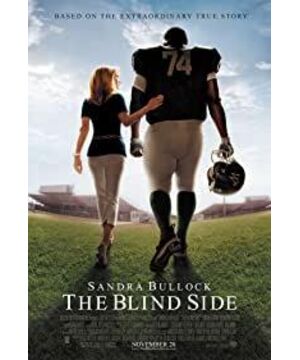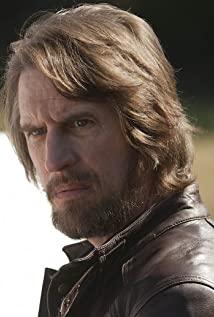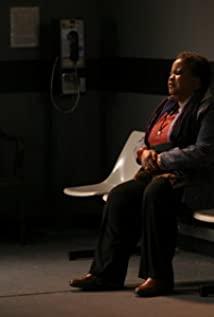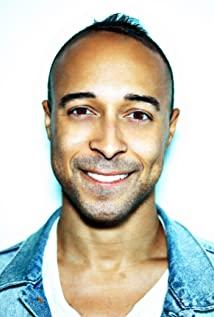The movie "The Blind Side" takes this as the title, but it's not just about the event. I guess it meant to say that some hunts are taking place, some people are running desperately, and there is a blind spot in life that is even more terrible: there are scarcity, collisions, and dangers, but no one sees it.
The protagonist of the film, Michael Oher, is indeed a person in reality. He is a popular sports star among Americans and the No. 1 pick in the 2009 National Football League Draft. But before that, he was unknown and called Big Mike, a "silly big guy" in Chinese. He is 1.93 meters tall, huge and dark, with an IQ of only 80, and looks like a bear, but his eyes are like cows-you may only see such melancholy and docile eyes on large herbivores.
Darker than his skin is his future. He was born in a black slum, and he has never seen his father, and his mother is a drug addict without guardian rights. He has been changing between different schools and foster families since he was a child, always appearing silently and running away silently, so he is also nicknamed runner. To him, being tall only means two things: being able to eat and not being easily full.
Mike must meet someone to break this dark fate. His childhood partner in the black ghetto appeared in the newspaper every other time, and it was a social version of the murder report. Although the government is responsible for supervision, schools are responsible for teaching, foster families are responsible for caring, and charity organizations frequently collect donations for them, but these people are still orphans. No one really cares about them. All the managers have to do is to classify the data, and the people who donate money never get involved in their area. Just like Mike hates his own fancy name but can't get rid of it, Big Mike is an impression of casual glance, no one bothers to remember his real name. The slum is a big blind spot, where there may be charity but no love.
When the Tauchy family drove past Mike, Leigh Anne Tuohy (Leigh Anne Tuohy) saw the boy walking alone in the night through the rain-damp car window. How many days he has slept in the laundry room and went to the court to pick up leftover popcorn to fill his hunger. Lean moved her compassion, and a difference in thought caused her to stop and walk towards him and take him home.
I guess that at first the motivation for this lady to make this decision was her belief, her consistent charity activities, her demands of herself, the support of her family, and her wealth. But this unfamiliar "boy of color" was uncomfortably large, and all the people who had allowed him to stay with him before flinched. One was because he ate a lot; the other was because he and them were not in the same family.
He and Li'an are not necessarily family. Mrs. Lianne is not a saint, not the kind of pure and gentle charity that people imagine. She may leave people with the initial impression of teeth and claws and a tendency to control, but she is the driving force of this family, like a locomotive. She is generous, she gives, and they accept. Then they also accepted Big Mike, as if to pay for Mrs. Lean's decision. There is often a scene in movies where her husband, Sean, or youngest son, SJ, watching her silently and admiringly from behind. This woman always has the courage to do things that ordinary people can't even think of. For example, take home this strange, tall, black boy who has nowhere to come-when her daughter Collins turned back from the sofa to see him, her face trembled.
On the other hand, Big Mike is also getting to know them, familiar with them, and even—trying to accept them. The director took the two shots with equal shots, which surprised me again. Is the person who has been charity qualified to talk about acceptance? They have food and drink and live, they even help him participate in rugby training, hire tutors for him, and buy him a car. Is there anything else he can be critical of?
Maybe there are many people who think this way, so Big Mike became a runner. He had fled every host family before. While they helped him, they didn't believe him. They didn't believe that he had hope even though he was poor and had nothing. This is a hidden and terrible deprivation. Big Mike kept running away, but he didn't know what he was avoiding. He drew a small boat on the exam paper with a child on it; he wrote on another piece of paper, no, this is not Michael Oher.
Mrs. Lianne is good at doing charity projects, such as raising donations to a slum area and improving their living environment. For her, those donations are only "projects" with code names, no names, and no stories. Now, a living poor child is standing in front of her. She often froze there because of accidents, such as when he said "I never owned my own bed." A few times she quietly turned her face away and avoided. The difficulty is not how much you can give, how much you are willing to give, the difficulty is that you dare to look into his eyes, bear his pain, and even bear his "not grateful." Charity is not good at dealing with living people. It often turns both the giver and the recipient into symbols at the same time. Charity also has its blind spots.
In the mutual adaptation and acceptance, Tao Xi's family gradually used love to fill the blind spots. The relationship between Lean's youngest son SJ and Mike is one of the most moving parts of the film. At the first meeting, SJ said to Mike, "You have to smile at them so that they know you are a friend." So Mike learned to smile. Mike didn't know anything when he first joined the school football team. SJ made a practice plan for him. He used a DVD player to take pictures of Mike's every movement for correction. When he heard rumors, he stood up and called him his big brother. For people like Mike who are accustomed to charity, there is no more friendship than equals that can comfort people
after Mike enters the team. He couldn't understand the movement, let alone his position-the left inside winger. The coach told him time and time again that you have to intercept the opponent and prevent them from knocking down the quarterback with the ball! As a result, he picked up the opponent like a bear and threw it off the court. Sometimes he was pushing against his opponent, and suddenly he was out of the sky: "Look, there is a bunch of balloons flying in the sky..."
Mrs. Lean watched their training and saw that Mike was not interested in the collision, and she was not interested in the collision. Convincing people is not interested, and even less sensitive to scoring. Li Ann told him, you don't need to think about intercepting your opponent, just think about protecting your teammates and preventing him from being knocked down. Will you protect us if I or SJ are in danger? Your teammates are your family. Mike blinked those cute calf eyes behind the mask and smiled silently.
So, to protect his blind side, guarding his unpreparedness-seems to have become his motto and the "title" of this story. Protecting your family and your teammates happens to be protecting their blind spots and weaknesses. They can't see and can't do anything about them-protect him, not sting him or allow him to be knocked down by opponents.
Maybe not every inside left winger understands his responsibilities from this perspective. However, if you focus solely on guarding your opponent, you cannot make a person truly your teammate, and you cannot make strangers a "son", "brother", "mother" or "sister". If blind spots mean weaknesses, defects, deficiencies, and gaps, what makes people feel hopeful is that it also brings opportunities for love.
Mike has become famous. He has changed from a person who just accepts assistance to a "guard" who makes teammates and coaches so relieved. The college football teams favored him like they smelled sweet pastry, waiting for him to choose. This is the first time Mike has the right to choose. However, an accident occurred. The Taoxi family hoped that he would choose the University of Mississippi because they are all Mississippi alumni. Mike chose Mississippi, but a NCAA (National College Athletic Association) investigation order was issued. Parents and coaches were accused of forcing Mike to choose the University of Mississippi for profit. So Mike once again ran away from Tao Xi's house, ran back to the slum area, and had a fight with the local gangsters, almost killing him.
Finally Liane found him and said to him, Mike, you should choose the university you like. I hope you can do what you are willing to do, because this is your choice and your life.
Mike looked at her silently and asked: What if I choose to do lowly things?
She hesitated for a while-this is your choice, your life.
What a great confidence. Some people say this because of helplessness and resentment, but she is because she believes that what she loves will be preserved. Love means taking risks, because you have to let him go to the scoring zone.
"The Blind Side" has been unanimously praised by many churches in the United States and won the Oscar for Best Actress Award. It is also loved by ordinary people and won word-of-mouth and box office at the same time. The film’s producer Andrew said: “It’s very timely, especially in the 21st century. We live in a society built by countless families. However, the idea of mutual love and support in people’s hearts has slowly faded.”
I remembered. In an article I read some time ago, a teacher taught contemporary Chinese literature to students abroad. The students came back and asked him after completing a series of reading assignments: "Don’t Chinese literature and movies express beautiful feelings? Why are there so few?" Teachers can't help but sigh. In our country, only Critical Realism is applauded.
Love, support, family, trust, abundant life, lively hope. How important these things are, but they have the biggest blind spots and many opponents. Who will guard them?
"The blind side" tells the story that love can make giving and receiving blessings at the same time-they are equal, they rely on another source together, so love can not be afraid of risk, not afraid of blind spots. The film uses a much smaller space to describe Mike O'Her’s success, not because it is unimportant, but because it is meaningless if it does not exist as a footnote. If it is the subject itself, then we can always only tell many stories about "attack it". We are familiar with knocking down, but we don't know how to protect. In the end, there will always be the needy and opponents in the blind zone, with critical realism, but no vitality.
**This article was first published on the Caixin Network Humanities Channel.
View more about The Blind Side reviews











